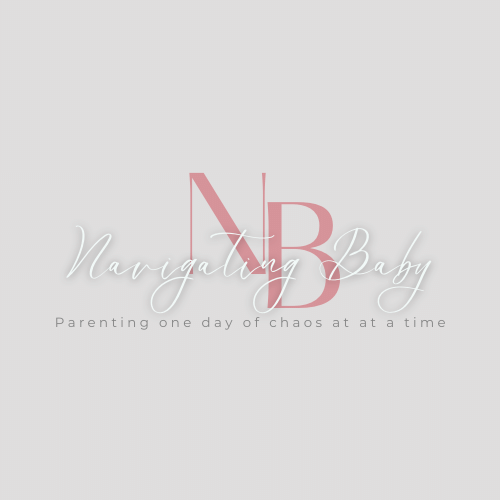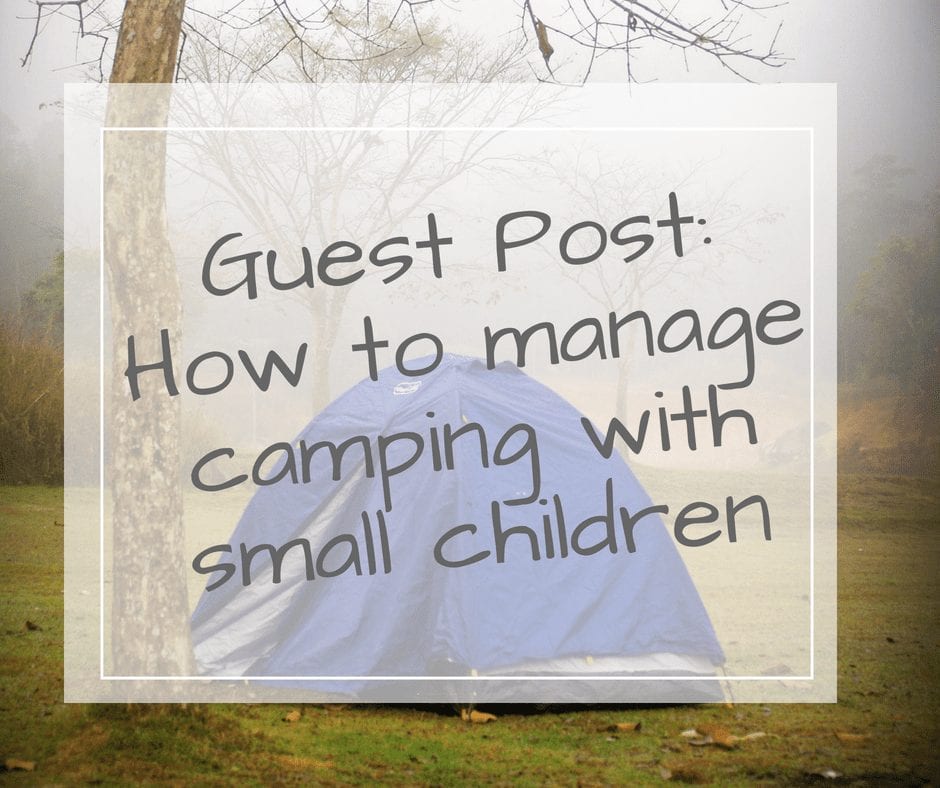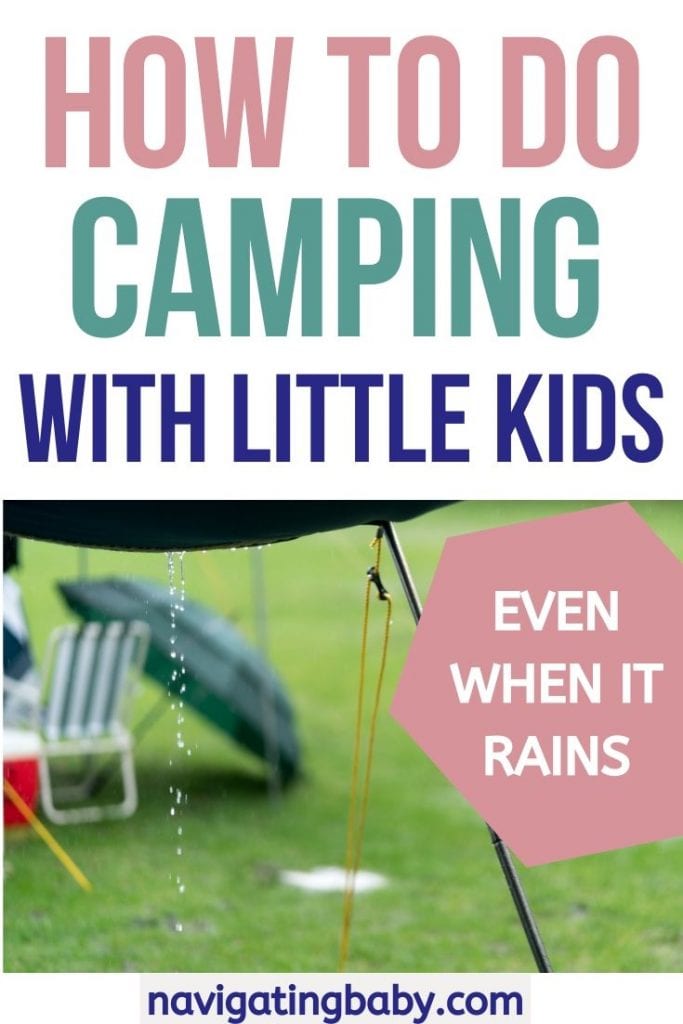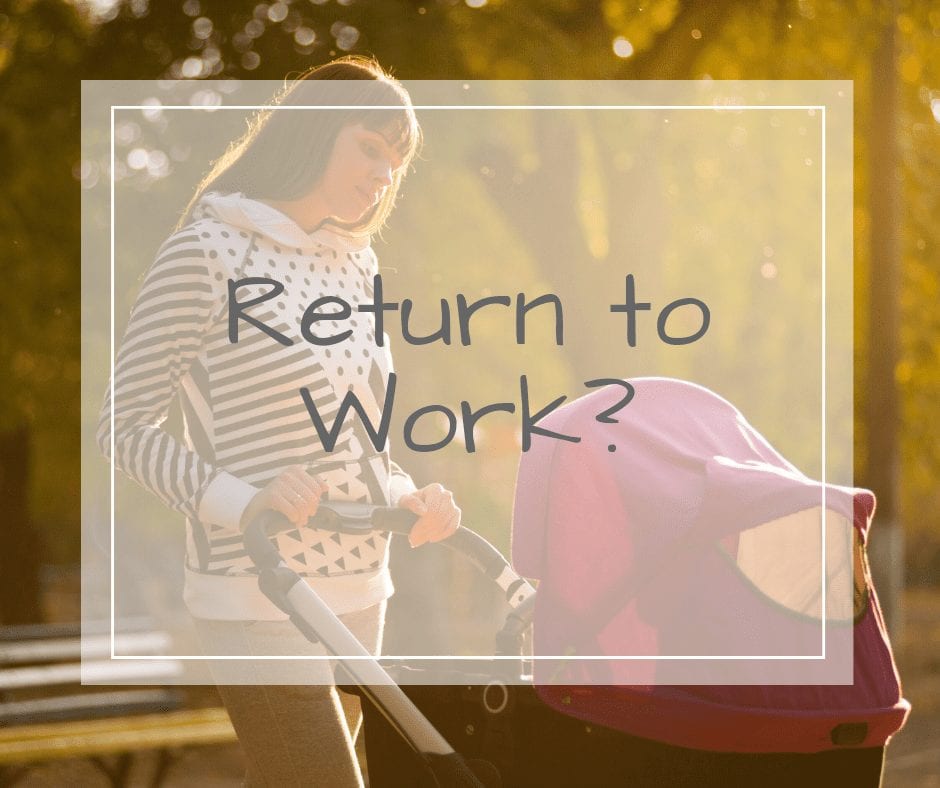Camping with small children sounds like a nightmare, but it is doable and can even be fun! When you bring small children along with you to a new environment, their minds can have trouble adapting to all of the new and novel things that they experience and this can produce a child a very tired and probably grumpy child.
Learning how to manage camping with small children is a process and each time you go, things will be better. Remember the first time will be the trickiest and then you will know what works and what doesn’t for your family and so you will have a base to plan from.
Table of Contents
Bring along a pup tent
My number 1 tip for new and experienced campers alike is to bring along a tent even if you don’t plan to sleep in it for example if you were actually sleeping in a lodge or an RV. The tent is your friend when camping with small children.
- Are the children restless or bored? Time to set up that tent and have them help as much as possible. Because these are smaller children, I recommend a tent that’s easier to understand and erect, such as a pop-up tent or a dome tent, rather than a luxurious cabin tent, which can take a half hour or more.
- If it starts raining or drizzling, it’s tent time.
- If it gets too hot and the sun is really beating down, take 1 or 2 hours to rest and rehydrate.
- If the bugs get too awful, time to retreat into the tent.
- And most importantly, when the kids get tired or cranky, definitely time to take a break and restore sanity in the tent.
The theory is that the tent provides a small, familiar, safe space away from all of the many things in nature, which is very useful for resting and for simmering down from all of the excitement and stimulation. As it is a smaller space, it can also be used for time-outs. A kids tent or a pup tent is also really useful for stopping the kids from marching mud and who knows what else into the main tent as they can play in their kids tent and not in the main tent or the RV.
Bring along snacks, but watch the ingredients
Snacks can provide an energy boost for a tired child, but they also provide a small break in the day. While they’re eating, you get a reprieve from incessant questions and talking and can use the time to sort out anything that you need to do, such as checking the map again, or re-applying sunscreen or bug repellant.
Not all snacks are good snacks to bring if you plan on being active out in nature for example hiking or walking nature trails, so check those nutrition facts. You want snacks that are low in sodium so that your family doesn’t become dehydrated. You also want your food to provide energy, rather than the midday food blues, so you want food that is as low in chemicals as possible, especially sulfur. This means that most snacks that are targeted at campers are actually some of the worst that you can take: dried jerky, dried fruit, or trail mix are all full of salt and preservative chemicals.
If you aren’t doing a big trek and are camping with a car then nutrition may not be as important as making sure that the kids have a lovely treat on your weekend break. Oh and don’t forget the marshmallows for the camp fire!
Bring all of the essentials
Plan out a list of all of the things that you will need for your camping trip and pack it all up beforehand. This helps reduce stress before the trip because you know that you’ve got everything ready to go. Don’t forget your sunscreen and bug repellant. We have compiled a list of family camping essentials so you don’t have to.
Pre-plan activities, and absolutely don’t wing it your first time
One of the worst things that you can do as a first time camper is expect your child to be completely entertained by all of what nature has to offer. As this is a new environment, they’re not going to be sure how to approach it. And for some children, it isn’t the best idea to give them free reign to explore as they please, especially ones that like to put things in their mouths.
Safety First when Camping with Small Children
That brings me onto safety. Especially for city kids like mine I think it is really important to be very clear about the rules when camping.
So depending on their age you may let them explore the campground without you, but we set boundaries on how far our older children can go (not very far as I like to be able to always see them)
Make sure your kids know about any hazards whether its a stream, a river or just some stinging nettles
Bring a first aid kit with you
A word on children who are very engrossed by video games and electronics
Lots of children’s entertainment tends to involve gadgets and electronics and to try to substitute it all at once is going to leave them clueless, and then upset. Learning to be entertained with what is outside is a skill that takes time to develop, so you can’t expect them to get there all in one day.
You might want to take some form of entertainment that they like and let them play it less than normal.
When we go camping we keep any electronics just for quiet time later in the evening. So when we need the kids to stop running around and screaming we will allow them to put on a movie or first thing in the morning when they wake up at the crack of dawn we will let them watch something before we unleash them on the world.
I will say though that my boys love some screen time, but show them some trees to climb and they will be out there so I do fully recommend hiding those screens when you are camping.
Activities you can buy
If you plan ahead, you can buy various nature exploration kits aimed at children of your age range. They’ll typically come with magnifiers, binoculars, exploration tools, hats, and some games that they can play. Having new toys helps break up the day and give some focus. We have also found having additional kit gets our city kids more engaged with nature more quickly and calms down some of the running around and screaming as they search for bugs.
Another idea are games that don’t involve electronics at all. Some ideas for that are various card games, portable board games, or more old fashioned toys such as yo-yos, the ball on a string that you get into the cup, etcha-sketch, drawing and coloring with non-toxic and washable colors. Here are a few ideas that you might like:
Activities you can get for free
Not everyone is into buying things all the time, and that’s okay, too. There are plenty of existing games and activities that you can find. Check your local wildlife and parks service website for different activities that you can print out and play with your children. There are some other websites devoted to pen and paper games, such as “I Spy” and “Bingo”.
A good old fashioned walk through the woods or across fields to a lovely pub lunch always goes down a storm when we go camping. Getting out into the countryside is what it is all about after all right?!
Get ‘em moving with sports!
Physical activity is great for children and it helps them feel more at ease and comfortable. Bring along some sports equipment that you can play with at your camping spot. For example a football, a ball to play catch with, or a frisbee are all some good choices.
Getting little kids to sleep when you are camping can be a tricky business so when camping with small children I recommend as much physical activity as possible during the day to tire them out.
Camping with Small Children in the rain
If you are planning on camping with small children in the UK you are more than likely planning on camping with small children in the rain! This doesn’t have to be all doom and gloom though in fact I have found it to be the direct opposite.
They firstly don’t care that it is raining they still go outside and have fun and secondly this usually means mud so they adore getting muddy…
It may not be quite so much fun for you as the parents though so if it looks like it will rain I recommend this:
- Pack some colouring books, blank paper and felt tip pens just in case no one does want to go outside
- Investigate the local area to see if there is anything you can do undercover just for an hour or so to break up the day
- Bring wellies and rain macs
- Try to get the kids to wear shorts when they are outside in the rain (unless it is also really cold of course in which case you will need waterproofs), but if they can then shorts as muddy legs are much easier to clean and dry than muddy and wet jeans or tracksuit bottoms
- Pack a couple of extra changes of clothes and extra socks in case they really go to town in the mud or just get very wet
- Bring along some warming drinks like hot chocolate
- Invest in an events shelter so that you can still cook as of course you can’t use your camping stove in your tent
- Pack a couple of easy card games like Uno in case of heavy rain and really not being able to go outside for part of the time
- Definitely arrive during the day. No one wants to be putting up a tent in the rain and in the dark
Go forward and explore the wild! Good luck!
Now that you have some ideas on how to manage camping with small children I hope that you and your family have a great time out in the wild with nature!
Remember that much of your trip will rely on you staying patient and calm, too, so bring your own favourite snacks, and maybe a book to relax with, too. Of course don’t forget the wine or beer as once you get those little kids in bed then you may feel like you deserve a glass of vino.






Camping with kids requires a lot of preparation especially with fun activities for them to enjoy.